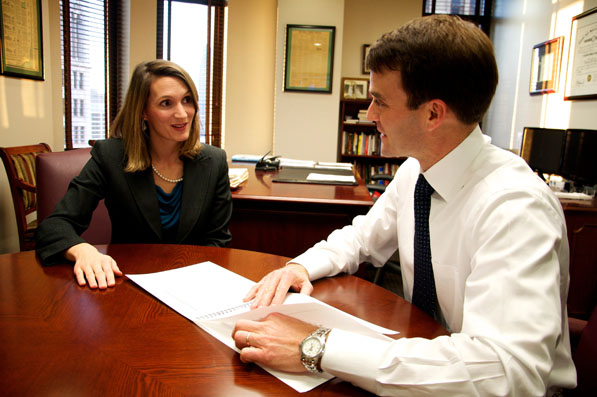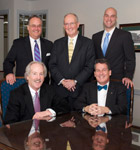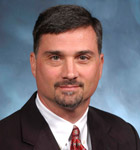Ken Polk founded the wealth-management company Arlington Family Offices in 1998, but he’s quick to say he didn’t build the firm himself. He says the credit goes to the families his Birmingham, Alabama-based company works for, his partners, and the great talent that care for each client family. The firm—which offers in-house tax services, an investment team, trust services, and more—started by serving two affluent families and has continued to grow by strategically adding no more than two families per year. Today, Arlington serves 20 families and manages more than $2 billion in assets. Last year, Bloomberg Markets magazine ranked Arlington Family Offices among the top 50 family offices worldwide and in 2010, Bloomberg Wealth Manager magazine named Arlington the second best wealth manager.
 After working as a tax consultant with Deloitte for some time, what led you to start your own company?
After working as a tax consultant with Deloitte for some time, what led you to start your own company?
I had a dream that was born out of a burden. The burden was that most service companies are founded to serve as many people as possible with the institution or founding company as the driver. Therefore, the question I asked myself was, “If I was building it for the family clients, what would it look like?” The result was a practice that served fewer families rather than as many families as possible. So that was our founding principle: that we would serve fewer, a more select group of families, and be able to serve them in a more comprehensive manner. And our services would grow to mirror our clients’ growth and their requests for our help.
And why did you make the decision to add no more than two families per year?
If we’re going to truly serve our families in a comprehensive manner, then we believe there are two very critical elements to get right. The first critical element is the intake process, which is very complex for wealthy families. You’re taking on a family structure, not only their assets, but multiple personalities, multiple needs. So our goal is to assure at the beginning that we understand the family’s needs and that they understand how we can help. Doing this well takes focused attention.
The second critical element is prioritizing client service ahead of business development. Families intuitively know that most businesses try to get as many clients as possible. However, we believe that a focus on business development distracts from serving families who have
chosen us to serve them for 20, 30, 40, or 50 years.

One of the services you provide is human-capital services. Can you explain what that means at your company?
The people that we serve are considered an asset in which investment is critical. When a family passes down financial capital to the next generation, we believe the worst thing that could happen is for the inheritance to become a burden because they don’t understand it. So our job is to understand the family: where they are, the transitions they will go through, and helping them see around those corners. It takes a lot of education, a lot of coaching. For example, many times we have seen the patriarchs say, “I’ve got this incredible, well-run business. Who in the world wouldn’t want to take this over?” But, the dreams of the second generation don’t match the dreams of the first generation and they can’t understand that.
A lot of firms in our industry measure their success by assets under management, but we look at “souls” under management. We do believe this make us unique. Currently, we have 101 souls under management. The industry is more focused on assets but we’re more focused on the people that we’re serving. This culture helps crystalize our vision: enhance someone’s life. It’s that simple. That’s our job.
How do you encourage this service-oriented, or soul-focused, attitude within your company culture?
First, it is important to hire the right people: those who are passionate about truly serving others. One of the lines in our culture statement is “our clients do not serve us; we serve them.” But, culture is not something you just talk about; it is something you do. Service is deeply rooted in the daily actions of our people. If you spend 30 minutes in our offices, you can see and feel it. Our people are great role models for each other.
How did you become so passionate about serving people?
At a young age I put together an advisory board consisting of some of the leaders in this industry: Jay Hughes, Peter Evans, and Ellen Perry. And I will have to give them a lot of credit because they helped me mature … quickly.

